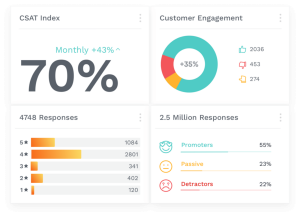A recent survey revealed 48 percent of small businesses use systems that put them at high risk of having bad inventory data, but here are four ways an inventory management system can significantly reduce that risk.
Information is good.
Information can help you make better decisions about your company’s operations – but ONLY if what you are collecting and analyzing is accurate.
Earlier this year, Wasp Barcode Technologies released a treasure trove of small business information through its 2016 State of Small Business Report. They collected and evaluated data based on a survey of more than 1,100 U.S. small business owners and executives and looked at growth, hiring, revenue, government, marketing and use of information technology.
The survey revealed today’s small businesses may be using a lot of bad or risky information, especially when it comes to their inventory management.
According to the report, only 16 percent of small businesses use inventory control software/systems. While 7 percent don’t track their inventory at all, the vast majority of small business owners said they used spreadsheets, accounting software, or pen and paper methods to track their inventory.
As a person who lives and breathes inventory management, the thought of not having reliable, real-time data about my supply chain causes nightmares.
Poor inventory management is one of the top eight reasons small businesses fail. You’ve got to know your counts are accurate, and you’ve got to be able to adjust them based on demand at your business. Any errors made along the way can have huge consequences.

Barcodes and scanners can help reduce the risk of bad inventory data.
The only way to reduce the risk of errors and increase the timeliness of your inventory data is to use an inventory management system.
Here’s why:
1. Inventory management systems track the physical locations of your inventory.
All too often, businesses use systems such as spreadsheets, accounting software, or pen and paper methods that are unable to track the real-time movements of inventory as it moves from receiving, to storing in your warehouse, and to shipping out to customers.
You have to know where things are supposed to be and when they’re supposed to be there. If you don’t, valuable inventory can go missing due to human error or theft.
Both of these factors can be virtually eliminated with a tracking system (usually based on a barcode or RFID technology) that can let you know an item’s exact location and who’s touched it as it moves through your system.
2. They eliminate paperwork errors.
Paperwork errors can be just as problematic as misplaced and missing inventory. Even the most proficient and conscientious employee is bound to make mistakes when forced to use spreadsheets as his main tool for recording and tracking inventory. Studies show that 88 percent of all spreadsheets contain errors.
With an inventory management system, every inventory item, whether bulk raw materials or tiny products like individual screws, has an accurate digital record (complete with tracking labels, pricing, photos, and any other information you deem necessary) that won’t be misplaced or mishandled.
3. Inventory management systems allow for mobile and cloud computing.
More people are working from their phones and mobile devices than ever before, so much so that more than two-thirds of small businesses admit they would be lost without wireless technology. Inventory management can be done via mobile devices as well, and using a mobile computer to scan and sync with the centralized database is a massive boon to those who want to save time and eliminate the errors that come with waiting to upload information via a conventional computer.
If you’re tracking inventory with pen and paper, your records may be out of date before you even finish writing the items down on paper. Cloud computing allows for instantaneous updates and for employees and managers to coordinate and collaborate as they go.
4. They ensure continuity.
Continuity means two things in this context. It refers to continuity across inventory lists and audits, which is important especially as your business continues to grow.
Another huge consideration comes with continuity across personnel. If the person in charge of inventory happens to be out, an inventory management system ensures there will be no changed protocols or confusion when someone else steps in to pick up the slack.
Business & Finance Articles on Business 2 Community(98)








